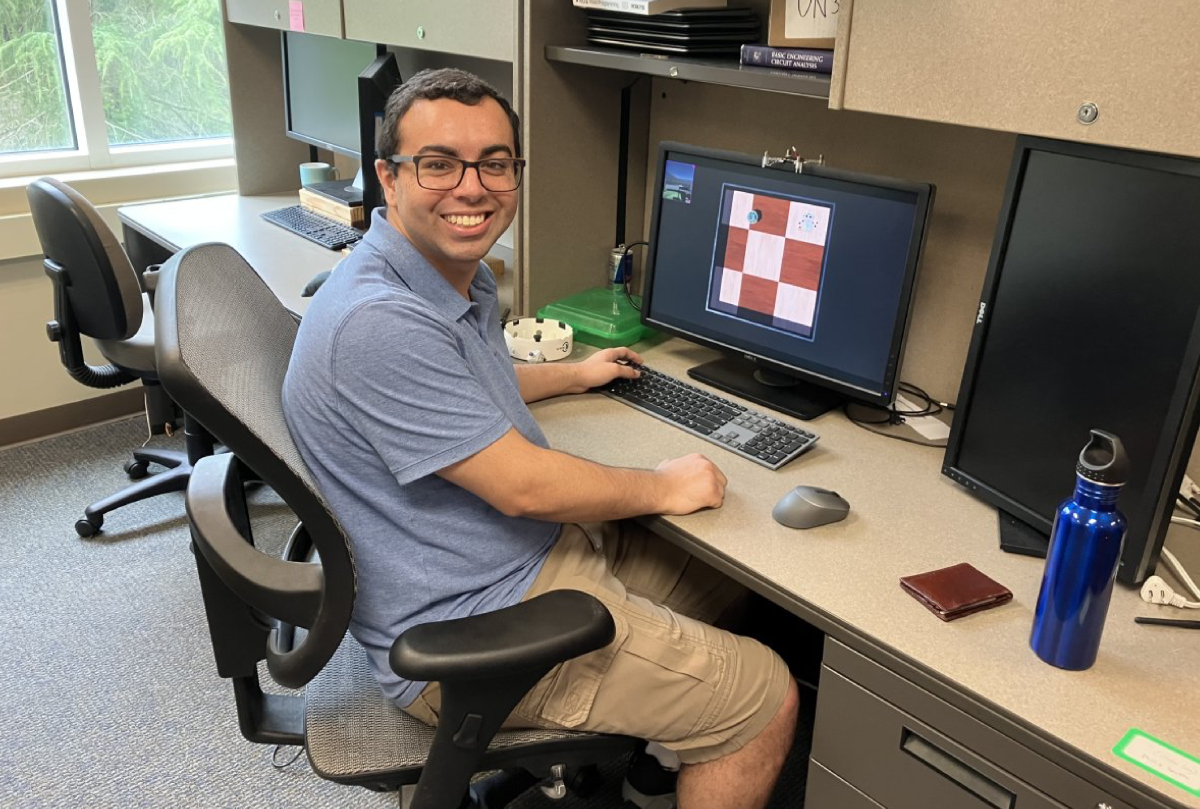CSpotlight: Learning the Power of Artificial Intelligence

Why did you choose to pursue a degree in computer science specifically at the University of Minnesota?
In high school, I really knew that I wanted to do research. I think the main thing that brought me here is the renowned research community and the opportunity to work with faculty that excel in artificial intelligence (AI) and computer science. That was a big draw for me.
How did you become interested in computer science? What are your specific interests within the field?
I became interested in computer science while I was growing up and learning about robots and androids from sci-fi films and books. I always wondered how their artificial brains worked and what made them intelligent. That inspired my exploration into AI and cognitive agents, which can perceive, learn, reason, and act autonomously. The idea of building an agent with an artificial brain that can learn as we do and even surpass us in some domains has always been fascinating to me. I combined my interest in AI with my interest in cognitive science and neuroscience. I like that my research is kind of an intersection of those areas. My ultimate goal is to use the development of cognitive processes in artificial agents to learn more about and gain new insight into the essence of intelligence or consciousness.
Tell us more about your internship experiences.
My first internship was at a software company in St. Paul called Acts Media, that was where I was introduced to machine learning. This past summer I participated in a Research Experience for Undergraduates (REU) internship at the University of North Carolina at Charlotte. I worked on deep reinforcement learning and cognitive robotics research in their robotics lab under the mentorship of Professor Wenhao Luo and Ph.D. student Yanze Zhang. I worked on developing an agent that was capable of learning in its environment and teaching itself to navigate to a target location. From there, we were looking to expand that capability and apply a human-inspired cognitive process like visual episodic memory in an agent to explore a novel environment more efficiently and with greater contextual understanding. An example of how this could be used would be a search and rescue operation - having multiple robots coordinate and make sure they are exploring an unknown environment as efficiently as possible. Currently, I am doing research in collaboration with UNC Charlotte which is a continuation of my work with the REU program. We’re exploring episodic memory, but have shifted focus to cognitive robotic safety in multi-agent reinforcement learning (MARL), which deals with things like multi-robot coordination and control. We’re hoping to publish soon.
What do you hope to contribute to the computer science community at the University?
I want my contribution to be my passion for research as well as being a teaching assistant (TA). I want to be a resource and a helper to students interested in the field. Being a TA for the past few years has been really important in helping students who are getting started in computer science and it is something that I really enjoy as well.
Have you been involved with any research on campus?
Before my REU program, I did the Undergraduate Research Opportunity Program (UROP). I was involved in a UROP project last spring with Professor Maria Gini. It was an opportunity to get to know the research process and learn some aspects of multi-agent cooperation. I worked with her and Ph.D. student Nabil Khan throughout the semester, then I presented my progress at the National Conference on Undergraduate Research in April 2023.
What advice do you have for incoming computer science students?
Explore projects and research that genuinely captivates you and aligns with your interests. Computer science is in nearly every industry and field today. You can fuel your curiosity and passion by seeking out or even creating novel opportunities that intersect with those interests.
What are your plans after graduation?
I’d like to pursue a Ph.D. focusing on cognitive agents. I’d like to explore more of building long-term episodic memory recall as well as imagination and self-awareness in agents. My ultimate goal is to be a researcher at a university or lab where I can contribute to the development of safe artificial general intelligence (AGI) and beyond that advances scientific discovery and benefits everyone.